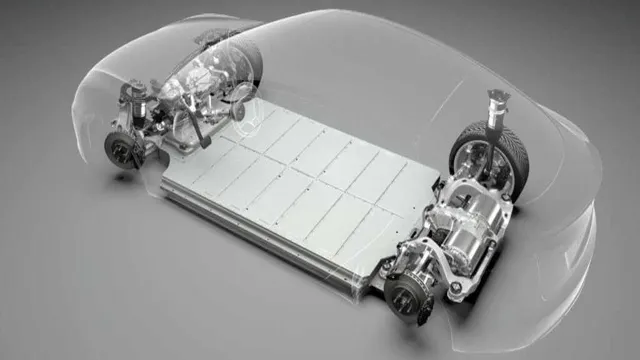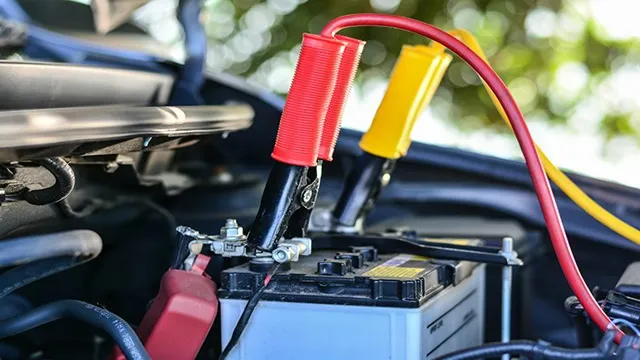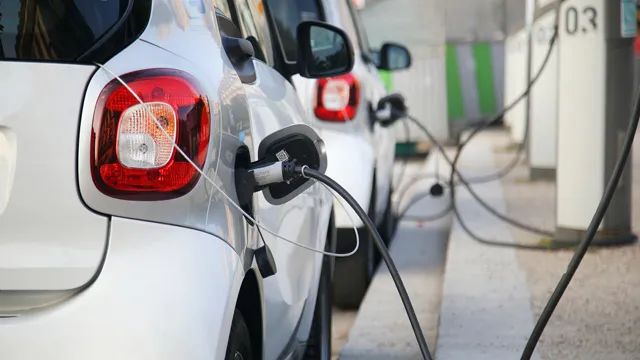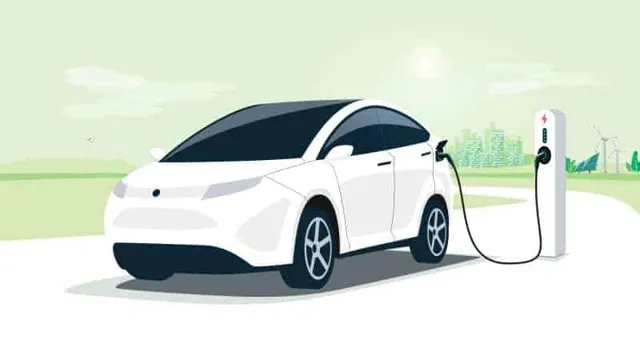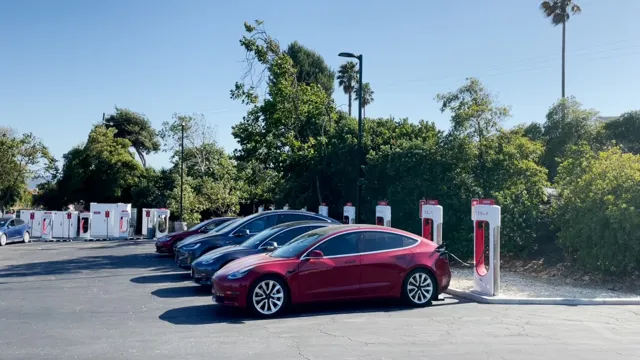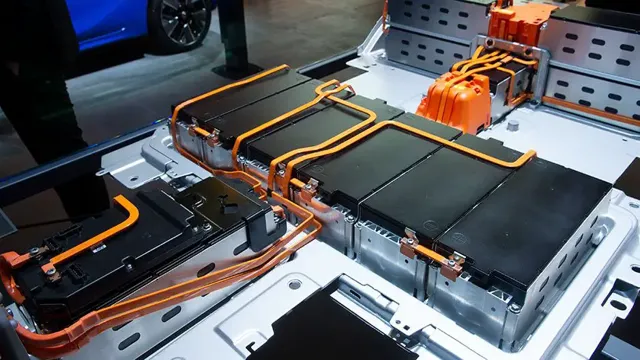Revolutionizing the Automotive Industry: The Groundbreaking Tesla Battery Technology for Electric Cars
Tesla Motors, the world’s leading electric vehicle manufacturer, has been pioneering the development of more efficient and cost-effective batteries for years. But how exactly does their battery technology work? Decoding Tesla’s Battery Technology reveals insights into their advanced lithium-ion battery design, which has revolutionized the electric vehicle industry. From the secretive Gigafactory to the increasing demand for sustainable energy solutions, we’ll explore the history and future of Tesla’s battery technology, and take a closer look at the science behind one of the most exciting innovations in modern engineering.
Introduction
Electric car technology is rapidly evolving, and Tesla has been one of the pioneers in this field. The company’s battery technology has been a game-changer, making it possible for electric cars to offer a range that can compete with gas-powered vehicles. The batteries used in Tesla cars are designed to be highly efficient and long-lasting, thanks to innovations such as the use of lithium-ion cells and advanced cooling systems.
In fact, the company has set new standards by offering models such as the Model S boasting a range over 400 miles. The significance of Tesla’s battery technology extends beyond cars, as it has the potential to revolutionize the entire energy sector by providing a sustainable and efficient source of power to homes and businesses. With Tesla being at the forefront of the electric car revolution, it is likely that their battery technology will continue to evolve and become even more impressive in the years to come.
What is Battery Technology?
Battery technology refers to the advancement and development of rechargeable batteries that store electrical energy for later use. It involves the manufacturing of batteries that have higher energy densities, longer lifetimes, and faster charging capabilities. The technology is essential in powering a wide range of devices, including smartphones, electric vehicles, and renewable energy systems.
It is also critical in reducing carbon emissions, as battery technology helps to store excess renewable energy for later use. With the rapid advancement of battery technology, there is a growing demand for more efficient and sustainable energy storage solutions. The future of battery technology looks promising, with new innovations and breakthroughs being made every day.
Importance of Battery Technology in Electric Vehicles
Electric vehicles have gained a lot of attention in recent years, and for right reasons. While the primary focus was primarily around reducing global carbon emission to the atmosphere, the response has been slow. Electric vehicles are a way out for this, and the truck and car industries are increasingly moving towards EVs as the future.
However, one crucial thing that must be considered when it comes to EVs is the importance of battery technology. The battery is the heart of an EV, and without efficient batteries, its performance will be subpar. The battery technology needs to meet certain.
These requirements include energy density, recharge time, durability, safety, and cost-effectiveness. Therefore, it’s crucial to focus on battery technology to make EVs more efficient and reliable.
Tesla’s Battery Technology
Electric car technology has come a long way in recent years and Tesla’s battery technology is among the most advanced in the industry. Tesla’s batteries use lithium-ion technology, similar to what you’d find in your phone or laptop, but on a much larger scale. One of the key advantages of Tesla’s batteries is their ability to charge quickly, with some models able to recharge to 80% in as little as 30 minutes.
This has made electric cars more practical for everyday use, as drivers can quickly recharge their car during a long journey. Additionally, Tesla’s batteries offer greater range than many competitor models. While some electric cars can only travel around 100 miles on a single charge, Tesla’s Model S can travel up to 402 miles on a single charge.
This extended range has made electric cars more appealing to people who were previously put off by the limited range of older models. Overall, Tesla’s battery technology is playing a significant role in making electric cars more practical, efficient, and appealing to a wider audience.
Overview of Tesla’s Battery Technology
Tesla’s Battery Technology is one of the most advanced in the automotive industry. Their batteries are designed to be highly efficient, long-lasting, and environmentally friendly. One of the key features of Tesla’s Battery Technology is its use of lithium-ion batteries.
These batteries are much more efficient than traditional lead-acid batteries, providing longer range, faster charging times, and more power. Additionally, Tesla’s batteries are designed to be modular, allowing for easy replacement and upgrades. This means that as technology advances, Tesla owners can upgrade their batteries to take advantage of new developments.
Tesla’s Battery Technology is also highly sustainable, with the company using recycled materials to produce their batteries. This reduces the carbon footprint of the battery production process, making it more environmentally friendly. Overall, Tesla’s Battery Technology is a game-changer in the automotive industry, providing better performance and sustainability than traditional battery technology.
How Tesla’s Battery Technology is Unique
Tesla’s battery technology is one of the company’s biggest strengths, and it sets it apart from the competition. One of the unique features of Tesla’s battery technology is the use of cylindrical cells, which are more efficient than other battery shapes. Additionally, Tesla uses advanced chemistry and engineering to decrease the cost and increase the performance of their batteries.
Another notable feature is the company’s ability to produce its own batteries, specifically the Gigafactory in Nevada, which is currently the largest battery manufacturing facility in the world. This vertical integration allows Tesla to have more control over its supply chain and keep prices down. Overall, Tesla’s battery technology is one of the key factors that make their electric vehicles stand out from the competition.
Key Components of Tesla’s Battery System – Batteries and Modules
When it comes to Tesla’s battery technology, one of the key components is the batteries themselves. Unlike traditional automotive batteries, which are usually lead acid, Tesla uses lithium-ion batteries because of their higher energy density and longer lifespan. These batteries are made up of thousands of small cells, each of which contains electrodes and an electrolyte solution.
To form a functional battery, these cells are then organized into modules, which are essentially battery packs that can be stacked together to create the final battery system. Important factors such as the size and weight of the battery, as well as its overall performance, are largely determined by the number and arrangement of these modules. Tesla’s battery system has been a key factor in making its electric vehicles more efficient and longer lasting, and has been a driving force behind the company’s success in the industry.
Impact of Tesla’s Battery Technology
The impact of Tesla’s battery technology on the electric car industry has been revolutionary. Tesla’s battery technology has enabled them to produce electric cars that have a longer range than ever before. This removes the range anxiety that many people have had when considering purchasing an electric car, making electric cars a more practical option for everyday use.
With the development of their battery technology, Tesla has also been able to bring the cost of their electric cars down, making them more affordable for the average person. The technology has also allowed Tesla to provide their customers with the ability to charge their cars at home, which is hugely convenient. Overall, Tesla’s battery technology has had a massive impact on the electric car industry, making electric cars more practical, affordable, and accessible for everyday use.
Environmental Benefits of Tesla’s Battery Technology
One of the greatest environmental benefits of Tesla’s battery technology is the reduction of greenhouse gas emissions. With the widespread use of electric cars powered by Tesla’s batteries, we can significantly reduce the amount of carbon dioxide and other harmful pollutants released into the atmosphere. Additionally, Tesla’s battery technology allows for the storage of energy from renewable sources, such as solar panels and wind turbines.
This means we can rely less on fossil fuels and more on clean, renewable energy sources. As a result, we can reduce our dependence on non-renewable resources and move towards a more sustainable future. Furthermore, Tesla’s batteries can also be used to power homes and businesses, further reducing our reliance on traditional power sources and providing an additional layer of energy security.
Overall, Tesla’s battery technology has the potential to revolutionize the way we consume and generate energy, significantly reducing our impact on the environment and paving the way towards a brighter, more sustainable future.
Future of Tesla’s Battery Technology
There is no doubt that Tesla’s battery technology is world-class, and the company’s advancements in this area have far-reaching implications. Tesla’s batteries are capable of powering electric cars, homes, and even cities. This technology has the potential to revolutionize the way we generate and consume energy, reducing our reliance on fossil fuels and providing a more sustainable future for generations to come.
The impact of this technology cannot be understated. With Tesla’s battery technology, we can reduce our carbon footprint, lower our energy costs, and create a cleaner, healthier planet. As the technology continues to evolve, we can expect to see even more impressive advancements from Tesla and other innovators in this space.
The future of energy is bright, and it is thanks to the incredible work being done by companies like Tesla. Whether you’re an investor, an environmentalist, or simply someone who cares about the future of the planet, Tesla’s battery technology is something worth paying attention to.
Conclusion
In conclusion, the Tesla battery technology is truly electrifying. It’s a game-changer in the world of electric cars, offering drivers an affordable and sustainable way to cruise around town without sacrificing speed or style. With its sleek design, impressive range, and eco-friendly production methods, the Tesla battery is the future of automotive technology.
So if you’re ready to take the leap and join the electrification revolution, look no further than Tesla – the smart and sustainable choice for savvy drivers everywhere.”
FAQs
What is an electric car?
An electric car is a vehicle that is powered by an electric motor and battery, rather than a traditional internal combustion engine.
What is Tesla?
Tesla is an American automotive and energy company that specializes in the design and production of electric cars and renewable energy solutions.
How does a battery in an electric car work?
The battery in an electric car works by storing electrical energy that is then converted into mechanical energy to power the vehicle. Tesla uses lithium-ion batteries in their cars.
What is the range of a typical electric car battery?
The range of a typical electric car battery varies depending on the model and make of the car, as well as driving conditions. Tesla offers a range of up to 402 miles on a single charge.
What are the benefits of owning an electric car?
There are many benefits to owning an electric car, including lower fuel costs, reduced emissions, smoother driving experience, and tax incentives.

